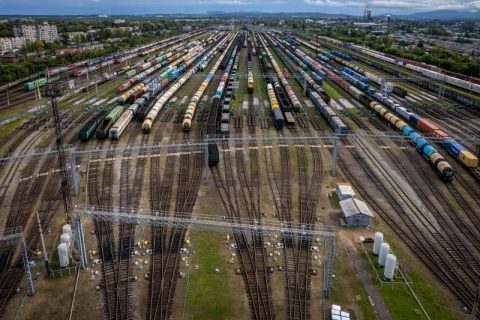
Russian Railways cargo volumes slow down during summer
Russian Railways (RZD) is experiencing a slowdown in cargo transportation. In August alone, the national railway company experienced a cargo increase of 0.1 per cent compared to the same month last year, which amounted to 103,7 million tons, reaching the lowest growth rate in the past three months on a year-on-year basis.
According to RZD, the growth rate of its national rail freight network amounted to 0.1 per cent,1.1 per cent and 1.4 per cent in August, July and June, respectively. Cargo volume reached the same low point of 0.1 per cent in May this year, with 106,7 million tons on record. Currently, grain, coke, ferrous scrap, fertilisers and ferrous metals dominate the volume in its network. The grain has gained significant popularity. In August alone, the transportation of grain by rail in Russia has increased by 1.4 times.
Apart from that, the overall rail volume is experiencing an impact brought up by EU sanctions. The eleventh package of the EU sanctions proposed a stricter transit policy in June for dual-usage goods using railway transiting via Russia. As the sanctions gradually unfold into practice, rail freight volume in Russia could fluctuate in the coming months. The tightened EU sanctions towards Russia have not made RZD’s life any easier, and last year was also an example.
Decrease in 2022
In the same month last year, the seven sanction packages of the EU and the US against Russia had already resulted in the suspension of supplies of various equipment and technologies, many of which are crucial for the wagon-building sector of the country. This, in turn, led to the massive demurrage of rail cars, including the so-called innovative rolling stock.
The Russian rail cargo volume was impacted as well. Cargo transportation by the Russian Railways (RZD) decreased by 3,8 per cent over 2022. RZD transported roughly 1.2 billion tons of cargo last year, with a peak in the transport of coal, grain and building materials during December, saving the year. The main components of RZD’s 2022 throughput were coal with 354.4 million tons of cargo, oil and oil products with 216 million tons, construction materials with 133.9 million tons, and iron and manganese ores with 115.2 million tons of cargo.
Also read:




